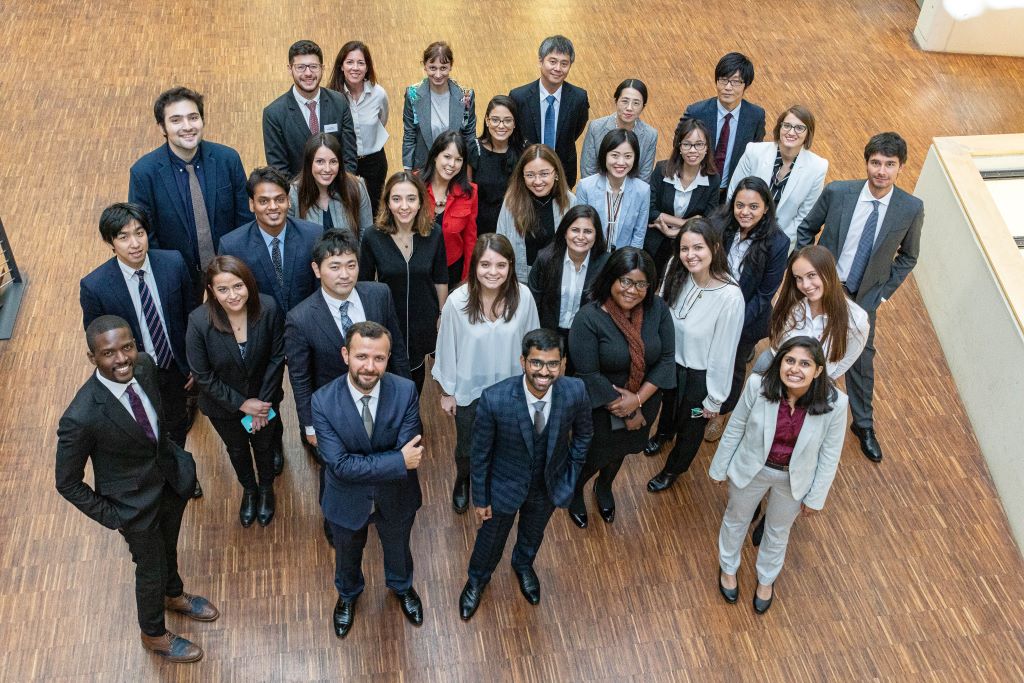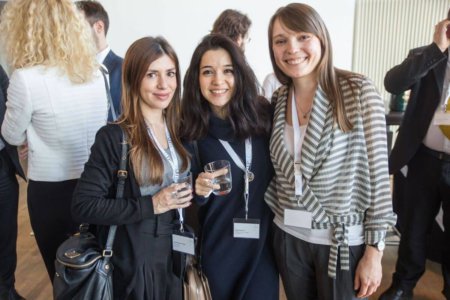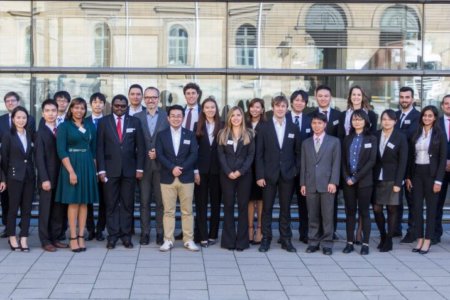Ana da Motta was determined to pursue an international career once she graduated from law school. The timing coincided with the surge in the use of the Internet and mobile devices worldwide, and it touched upon a topic that da Motta was already familiar with – copyright.
Born and raised in São Bernardo do Campo, Brazil, da Motta’s pre-master’s career involved working with Brazilian artists in the field of copyright. By applying to the Munich Intellectual Property Law Center’s (MIPLC) LLM Intellectual Property (IP) programme, she took her career a step further. “I got the chance to visit GEMA’s offices and helped a few Brazilian artists to get associated and receive royalties,”, says da Motta.

Hailing from Brazil, Ana da Motta secured a job in Europe upon graduating from MIPLC’s LLM Intellectual Property programme. Source: Munich Intellectual Property Law Center
That’s not the only exposure she walked away with. To work on her thesis, da Motta approached a renowned literary agency in Barcelona specialising in worldwide rights from Brazilian best-selling author Paulo Coelho. She not only secured an internship but also received an offer for a permanent position upon completing her programme. “I left MIPLC with a job in Europe, just like I had dreamed, and that made me feel so empowered!”, she says.
Nearly two decades ago, MIPLC already had a curriculum designed to meet future market demands, a commitment that endures today. They know that educating the next generation of experts at the intersection of emerging technologies, dynamic markets, and the law requires embracing change. Its updated curriculum reflects this, covering topics such as Competition in Digital Markets, Artificial Intelligence, Digital Technology, and Data Law.
Leading these sessions are faculty drawn from MIPLC’s leading partners: the Max Planck Institute for Innovation and Competition, the University of Augsburg, the Technical University of Munich, and the George Washington University, as well as a variety of scholars and practitioners from around the world.
This explains why a MIPLC education is so impactful. To this day, da Motta, who completed her LLM in 2007, fondly remembers her “Computers and the Law” and “Licencing” courses.
“My professors were thoughtful, knowledgeable, and patient, challenging my ideas in a respectful but provocative way, which really helped my thinking exercise,” she explains. “A funny anecdote is that lessons in the latter course were one of the hardest to learn, and my grades were far from good, but I also put those precious lessons to work throughout my professional career.”
The expertise and support from the Max Planck Institute for Innovation and Competition further distinguish MIPLC graduates. Da Motta is a prime example — now a Senior Manager of Digital Policy and AI at Amazon Web Services, she advocates for policies supporting digital transformation and cloud and AI adoption in Europe, the Middle East, and Africa.
“I am passionate about creating a positive social impact and enhancing citizens’ health and lives through innovation and technology,” she says.
Future-focused approaches aside, MIPLC’s excellence extends beyond campus too. It readily offers students opportunities for internships with high-level representatives of (parent) law firms, corporations, IP institutions, and academia. From classrooms to events like the Lecture Series, Career Talks, Alumni Stammtisch, and the Annual Alumni Conference, students here are presented with a wealth of opportunities to grow their network by connecting with and learning from their peers, teachers, alumni, and industry experts.
It’s this level of engagement that compels current students like Adanna Onah to describe their MIPLC experience as “transformative.” She cherishes the time she’s spent exploring Bavaria with classmates and attending the monthly alumni Stammtisch.

Adanna Onah says that her experience with MIPLC has been transformative; preparing her for a world of possibilities in terms of her future career path. Source: Munich Intellectual Property Law Center
“Spending the year with classmates from all over the globe and learning from them has been a very enriching experience that I will forever cherish,” she says. “The sense of genuine friendship and the level of intellectual exchange fostered within the class is something I had not thought possible for a one-year programme.”
But MIPLC offers more than just knowledge and a global network. Here, students have personal tutors, the biggest IP library in the world, as well as access to Career Services of the Technical University of Munich and the Centre for Professional Development and Career Strategy office of The George Washington University Law School.
“I knew I would learn a lot at MIPLC, but I underestimated how much new information and knowledge I would gain within this short period,” says Onah. “The programme has opened me to a world of possibilities in terms of career choices in IP and competition law. It has instilled in me a sense of confidence and resilience, empowering me to navigate future challenges with determination.”
Follow the Munich Intellectual Property Law Center on Facebook, LinkedIn, and Instagram













